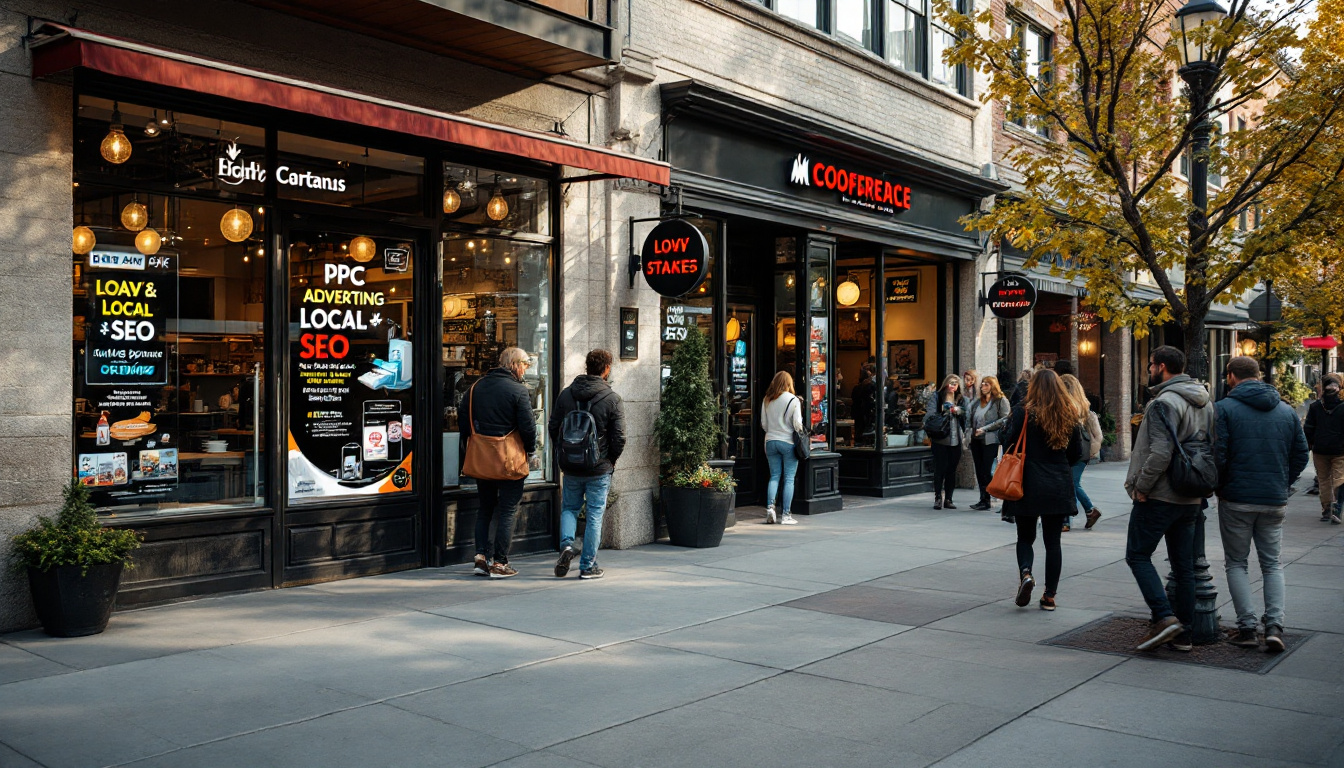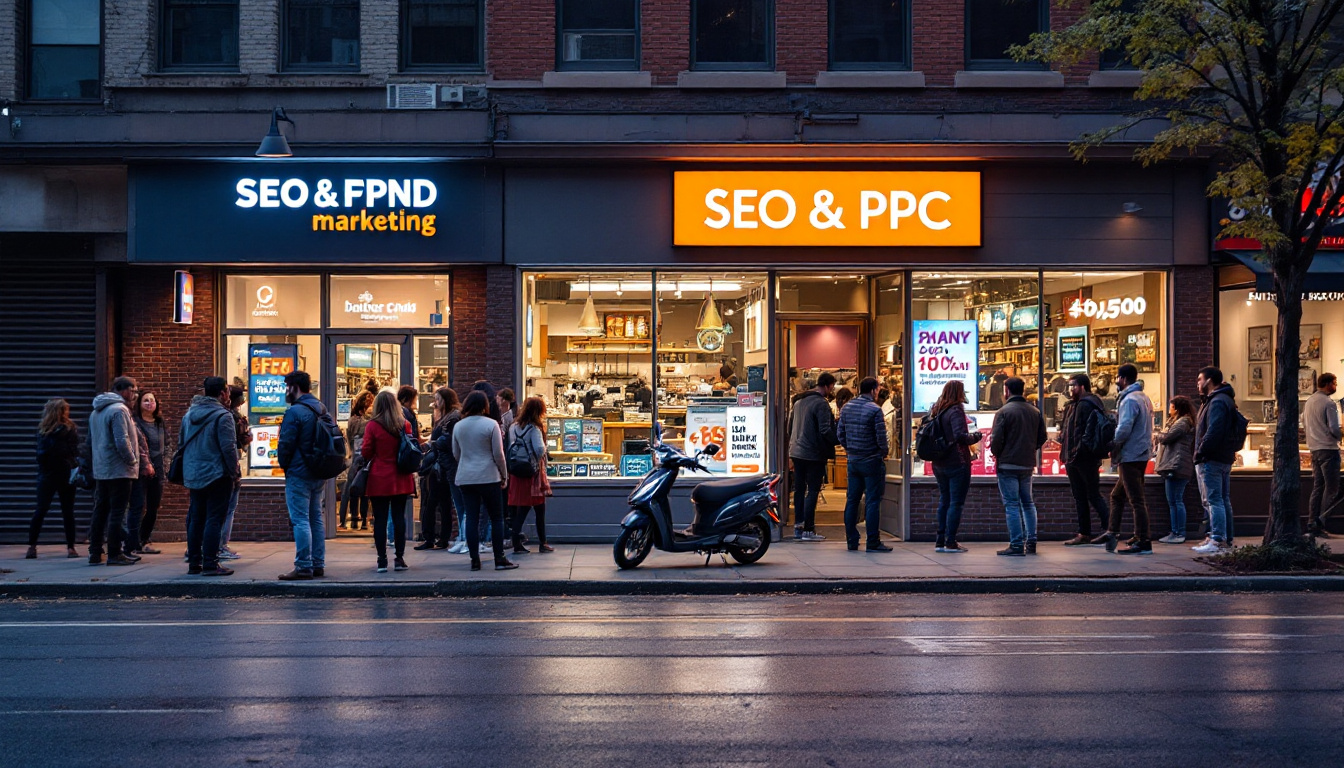How PPC Complements Local SEO for Aurora, CO Businesses

Businesses in Aurora, Colorado, face unique challenges when it comes to attracting local customers. With a rich tapestry of community and culture, local enterprises must harness various strategies to cut through the noise of competition. Pay-Per-Click (PPC) advertising and Search Engine Optimization (SEO) are two potent tools in the digital marketing arsenal. Understanding how these two methodologies complement each other can empower businesses to achieve greater visibility and engagement.
How PPC Complements Local SEO for Aurora, CO Businesses
PPC and Local SEO can work harmoniously to enhance a business's overall online presence. While SEO focuses on organically improving search rankings through content and keywords, PPC can provide immediate visibility through paid advertisements. When both strategies are employed together, businesses can reach their target audiences more effectively.

In Aurora, local businesses can leverage PPC to attract nearby customers actively searching for their services. This is especially useful when competition is high. For instance, when a potential customer searches for “coffee shop near me" in Aurora, ads may prominently display at the top of the search results, drawing attention before they even look at organic listings. The strategic placement of these ads can lead to higher click-through rates, as users are often inclined to trust the businesses that appear first, whether through paid or organic means.
Furthermore, PPC campaigns can offer valuable insights into which keywords are converting most effectively. These insights can guide relevant changes to local SEO strategies, creating a feedback loop that continuously sharpens both approaches. By analyzing data from PPC campaigns, businesses can identify trending search terms and customer preferences, allowing them to tailor their content and optimize their website accordingly. This synergy not only enhances visibility but also improves the overall user experience on their site.
The difference between PPC and SEO: Why use both?
Understanding the fundamental differences between PPC and SEO is crucial for creating a balanced digital marketing strategy. SEO is a long-term approach that involves optimizing a website's structure and content so that search engines like Google will favor it. This process can take time to yield results, often several months, but the rewards can be considerable in terms of sustained visibility and inbound traffic. For businesses in Aurora, this means that while they work on building their organic presence, they can still attract customers through immediate PPC efforts.
PPC, on the other hand, provides immediate exposure but requires ongoing investment. Advertisers bid on specific keywords, and their ads appear when those keywords are searched. This means that businesses can control their visibility and budget more flexibly. The combination of the delay in SEO results and the immediacy of PPC creates a powerful dynamic that can benefit local businesses. For example, a new restaurant in Aurora can use PPC to announce its opening while simultaneously working on its SEO strategy to build long-term visibility.
Using both strategies allows businesses to maintain a robust online presence, attracting traffic from different segments of the search market. While one strategy may be gaining traction over time, the other can bring in immediate returns, ensuring a steady flow of leads. This dual approach not only maximizes reach but also allows businesses to experiment with different messaging and offers, refining their marketing tactics based on real-time data and customer interactions.
How PPC can boost your local search visibility
PPC advertising can significantly enhance local search visibility through targeted campaigns. One effective method is to utilize geo-targeting, ensuring that ads are displayed only to users in specific locations, including Aurora. This tactic ensures that businesses reach individuals who are more likely to visit in person or convert online. By focusing on local demographics, businesses can create tailored ads that resonate with the community, showcasing their unique offerings and establishing a connection with potential customers.
Additionally, by promoting local landmarks or events in ads, businesses can increase relevance and engagement with the local audience. For example, a local brewery might run a PPC campaign tied to an annual Aurora music festival, drawing attention from festival-goers looking for a place to unwind afterwards. This not only drives traffic but also fosters a sense of community, as businesses align themselves with local culture and events, enhancing brand loyalty among residents.
Moreover, employing ad extensions, such as location, call, and review snippets, can provide additional context and improve the click-through rate of ads. This makes it easier for potential customers to contact or locate your business, thus increasing the likelihood of conversion. By integrating customer reviews and ratings directly into ads, businesses can build trust and credibility, encouraging users to choose their services over competitors. Such strategies not only enhance visibility but also create a more engaging and informative experience for potential customers, ultimately driving higher conversion rates.
Examples of SEO and PPC working together in Aurora, CO
Many successful businesses in Aurora have experienced the benefits of integrating SEO and PPC strategies. For instance, a local landscaping service could optimize its website for organic searches while simultaneously running a PPC campaign targeting keywords such as “landscaping services Aurora CO.”

By analyzing the data from the PPC campaigns, this business can identify keywords that are driving the most conversions and refine its SEO strategy accordingly. If specific keywords consistently lead to clicks and inquiries, they may consider creating dedicated content around those phrases to further elevate their organic search presence. This dual approach not only maximizes visibility but also allows the landscaping service to adapt quickly to market trends, ensuring they stay ahead of competitors who may not be leveraging both strategies effectively.
Another example could be a boutique clothing store promoting seasonal sales through PPC ads. By running ads during special events and tying them to relevant local SEO practices, such as updating their website to reflect current offerings and highlighting local trends, they can create a synergistic effect. Customers searching for “spring fashion Aurora” might come across both PPC ads and optimized organic listings, thus reinforcing brand recognition. Additionally, the boutique can use social media platforms to amplify their PPC efforts, creating a cohesive marketing strategy that engages potential customers across multiple channels.
Moreover, the integration of SEO and PPC can lead to enhanced customer insights. For instance, by tracking which PPC ads lead to the highest engagement rates, the boutique can gather valuable data on customer preferences and behaviors. This information can inform future SEO content strategies, enabling the business to create blog posts or articles that resonate with their audience. Such content could include style guides or tips on how to wear seasonal trends, further establishing the boutique as a go-to resource for fashion advice in the Aurora area.
Tips for aligning your PPC and SEO strategies
To effectively align PPC and SEO strategies, businesses should prioritize comprehensive keyword research. Start by using PPC data to identify which keywords are driving traffic and conversions. Then, incorporate these insights into your SEO efforts by optimizing site content with high-performing keywords. Additionally, consider long-tail keywords that may have lower competition but can attract highly targeted traffic, which is essential for niche markets.
Another strategy is to create a cohesive messaging framework across both PPC ads and website content. Consistent messaging enhances brand recognition and user experience, ensuring that whatever avenue a customer takes—be it an ad or organic listing—the message and offerings remain clear and appealing. This can also involve aligning visual elements, such as color schemes and logos, to create a unified brand identity that resonates with customers.
Regularly monitoring performance metrics is vital for understanding the effectiveness of integrated strategies. Utilizing tools such as Google Analytics can provide valuable insights into user behavior, allowing for tweaks and adjustments in real-time. Furthermore, conducting A/B testing on both PPC ads and landing pages can help determine which variations yield the best results, enabling businesses to optimize their campaigns continuously for maximum impact.
Tools to measure the combined impact of PPC and SEO
Measuring the combined impact of PPC and SEO requires the use of various tools that provide comprehensive analytics. Google Analytics is an indispensable resource that allows businesses to track user behavior, conversions, and the overall success of digital marketing campaigns. With its robust features, businesses can segment their audience based on demographics, interests, and behaviors, enabling targeted marketing strategies that resonate with specific customer segments. Furthermore, the integration of Google Ads with Google Analytics allows for a seamless flow of data, providing insights into how paid campaigns influence organic traffic and vice versa.
Additionally, using tools like SEMrush or Ahrefs can help businesses analyze keyword performance and backlink effectiveness, giving insights into how both PPC and SEO contribute to traffic and conversions. These tools can provide keyword difficulty ratings, traffic estimates, and competitive analysis, allowing businesses to refine their strategies. For instance, by identifying high-performing keywords in PPC campaigns, businesses can optimize their SEO efforts to target those same keywords organically, creating a cohesive approach that maximizes visibility across both channels. Moreover, the ability to track SERP positions and monitor changes over time can help businesses adjust their tactics in real-time, ensuring they stay ahead of the competition.
Lastly, implementing conversion tracking in both PPC campaigns and site analytics can provide a more holistic view of how customers interact with ads and content. This tracking allows businesses to see what works and what doesn’t, aligning PPC spend with organic growth efforts efficiently. By analyzing the customer journey from ad click to conversion, businesses can identify touchpoints that lead to successful outcomes and optimize their marketing funnel accordingly. Additionally, utilizing tools like Google Tag Manager can streamline the process of setting up and managing conversion tracking, making it easier for marketers to focus on strategy rather than technical implementation.
In conclusion, the synergy between PPC and Local SEO can be a game-changer for businesses in Aurora, CO. By understanding the roles each plays and effectively aligning their strategies, businesses can drive more traffic, enhance visibility, and ultimately achieve greater success in the increasingly competitive digital landscape.

As a Google Ads expert, I bring proven expertise in optimizing advertising campaigns to maximize ROI.
I specialize in sharing advanced strategies and targeted tips to refine Google Ads campaign management.
Committed to staying ahead of the latest trends and algorithms, I ensure that my clients receive cutting-edge solutions.
My passion for digital marketing and my ability to interpret data for strategic insights enable me to offer high-level consulting that aims to exceed expectations.



















